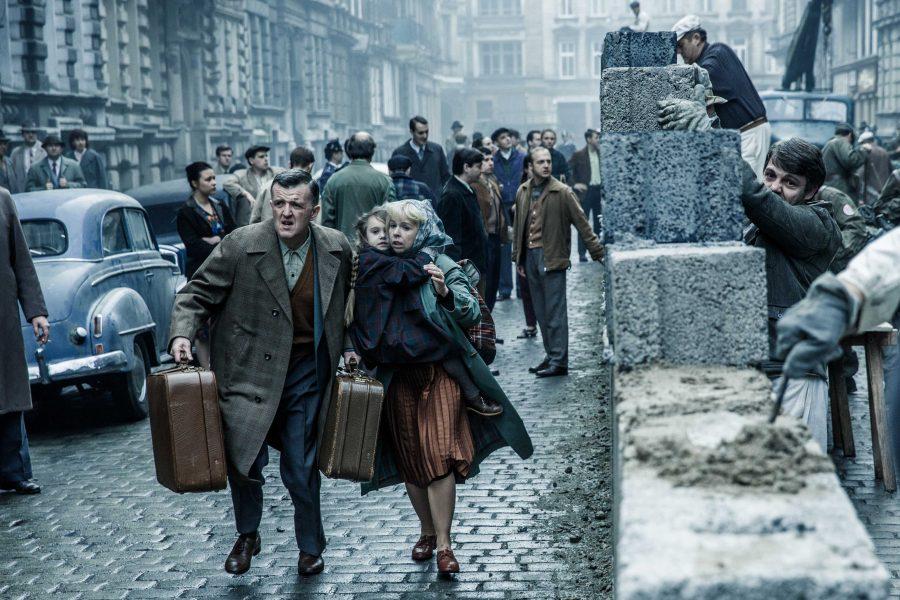Spielberg’s Cold War spy drama burns brightly for an hour and then sputters for another 80 minutes.
Rating: 3.0/5.0
Directed by: Steven Spielberg
Starring: Tom Hanks, Mark Rylance, Austin Stowell, Amy Ryan
Release Date: Oct. 16, 2015
It is 1960, and the Cold War has the world in its grip. In Brooklyn, British-born Soviet spy Rudolf Abel (Mark Rylance) is captured by the FBI, and while his innocence is by all accounts out of the question, the U.S. is compelled to give him a fair trial. Into this affair steps insurance lawyer James Donovan (Tom Hanks), accepting the government’s request to act as his defense attorney.
For roughly the next 50 minutes, Spielberg and company are at the top of their game, breathing life into this gripping historical courtroom drama. With the Cohen brothers co-writing with Matt Charman, elements of their style shine brightly through the script, with a surprising amount of off-kilter humor and droll dialogue.
While Hanks, as per usual, doesn’t exactly submerge into his character, his charismatic manner of delivering witty phrases works wonderfully against Rylance, whose Soviet spy is compelling and charming. There’s a real buoyancy to the interactions on screen while a number of interesting issues are explored. Without becoming too heavy-handed, Donovan walks the fine line between administering justice and upsetting the Soviet-fearing public.
But alas, this cannot last. About 50 minutes in, the real central plot of the film emerges. A U.S. spy plane, on an aerial reconnaissance mission through Soviet territory, is shot down and its pilot, Francis Gary Powers (Austin Stowell), captured.
The CIA enlists Donovan as an independent agent to broker a deal between the U.S. and the USSR, intending to exchange Abel for Powers. This sounds like an intriguing enough setup, until the story shifts to East Berlin, where the exchange is meant to take place, as the Berlin Wall is nearly completed.
As can be expected, a number of complications arise. The governments of East Germany and the USSR, while close bedfellows, do not see eye-to-eye on the matter of the prisoner exchange.
What is meant to be a taut political dialogue, though, and a race against time to retrieve Powers, devolves into a series of, well, business meetings. With a certain Kafka-esque flair to it, Donovan runs from one party to the other, dealing with mounting bureaucratic issues, trying desperately to make a deal happen and keep us interested in the pencil-pushing on screen.
When the end finally comes, there’s merely a sigh, with little joy or elation, that seems appropriate for having spent the last hour engaged in ponderous negotiations. Perhaps part of the issue is that certain aspects of the film’s second half are curiously underdeveloped, especially Powers himself, who is a mere wisp of a character compared to Alda. Indeed, the final twisted brilliance of “Bridge of Spies” is that we’d rather defect to the Soviet Union and spend some more time with Alda than bother with this prisoner-exchange business.














